Hadi Semati is a former professor in the faculty of Law and Political Science at Tehran University and a former scholar at the Woodrow Wilson Center and the Carnegie Endowment for International Peace. He is now an independent analyst.
What is the relationship between Supreme Leader Ayatollah Ali Khamenei and President-elect Ebrahim Raisi?
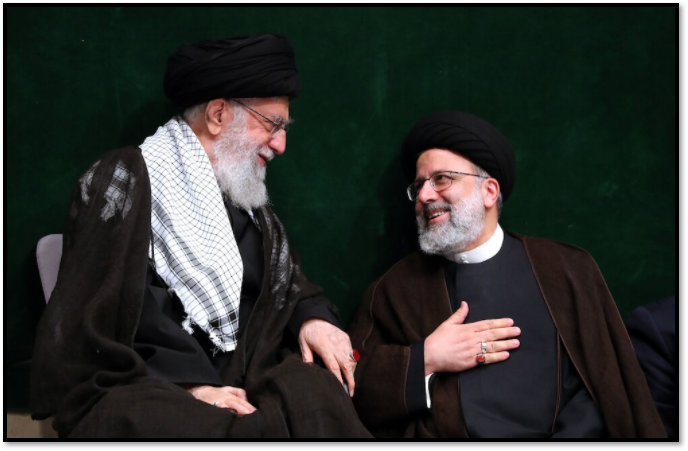
Ebrahim Raisi is a loyal soldier of the Islamic Revolution and Khamenei, even though he does not appear to have a special or unique relationship with the supreme leader. Khamenei appointed him to two prominent positions. In 2016, the leader appointed Raisi to head the Astan Qods Razavi, one of Iran’s wealthiest religious endowments with assets reportedly worth billions of dollars. In 2019, Khamenei appointed him to be Iran’s chief justice.
They both come from Mashhad. So that tradition of Mashhad may have helped Raisi in some respects. Raisi is also well-placed in the broader network of people around the supreme leader, whose office is in itself a powerful institution. Raisi reportedly attended Khamenei’s religious seminars in the 1990s. Given the age difference between the two men—Khamenei is 82 and Raisi is 60—Raisi may defer to Khamenei as a teacher figure.
Raisi does not have much experience in the executive branch, such as the daily running of a government, budgeting and planning, or foreign policy. My suspicion is that Ayatollah Khamenei—who knows well the ups and downs of government—will be a little worried about that and how Raisi picks his cabinet.
How influential was the supreme leader in either the choice of candidates or the outcome of the 2021 presidential election? In other words, did Khamenei want Raisi to win?
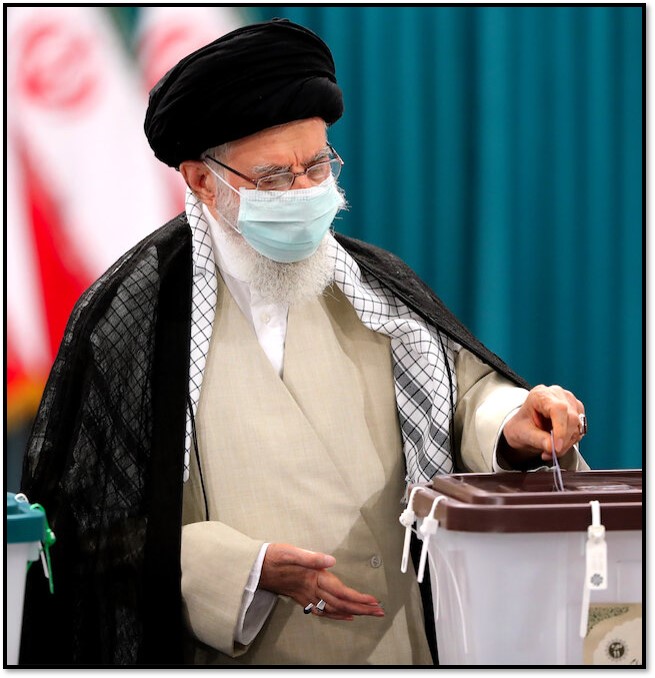
Iran’s system of government is not purely authoritarian. Khamenei does not handpick candidates. The conventional wisdom that Khamenei makes every decision and then people have to follow—it's really not like that. The election process is much more fluid and more dynamic. It starts from the bottom up. Political factions set the context and contour of elections by competing. Khamenei can, of course, influence the process. He usually only gets involved in the middle of the process or at the end. But he has historically refrained from explicitly supporting a particular candidate, with the exception of Mahmoud Ahmadinejad in 2009.
Khamenei realized that the next few years will be critical—given the security environment, the geopolitical threats, and then his own succession issue—and he wanted the government to have a unified voice. Two of the candidates—former Central Bank chief Abolnasser Hemmati, a political centrist, and Vice President Eshaq Jahangiri, a reformist and ally of President Rouhani—would have driven the policy in a different direction than the supreme leader would have envisioned. Where Khamenei had a direct influence was in the disqualification of Jahangiri and former Speaker of Parliament Ali Larijani. He could have stopped it, but he didn't. This was an indication that he'd prefer a principlist, and it happened to be Raisi at this time. In this particular election, Raisi was the only choice left among the principlists, or hardliners, who not only could unify the fractured conservative camp, but also win.
So Raisi wasn’t uniquely positioned as Khamenei’s favorite candidate. I'm not of the view that he was a rising star and Khamenei decided to tap that potential. He was just somebody with a narrative that developed over the last few years, partly because of his anti-corruption credentials. He happened to be lucky in a certain sense. If Khamenei wanted him not to run, he would have stopped him of course.
Is Raisi now beholden to follow the supreme leader’s dictates?
Unlike previous presidents, Raisi is unlikely to challenge the leader. Former Presidents Hashemi Rafsanjani, Mohammad Khatami and Hassan Rouhani could question or challenge Khamenei in private rooms because of their own character, histories, friendships going back decades, and the positions that they had held. The leader liked that in a way. The supreme leader would put Raisi in a different category relative to earlier presidents.
Raisi is very loyal—and that's the point. He is the kind of guy who would not challenge Khamenei on substantive issues. The age gap—he was only 18 at the time of the revolution—and his training put him in a very different class of seniority or status. He's not going to change the system like others might have done. He will support the general tenor and policy direction that Khamenei advocates.
How does Khamenei’s relationship with Raisi differ from earlier presidents?
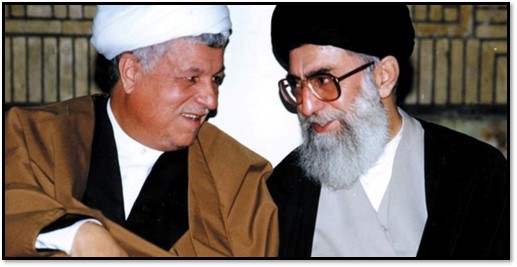
The relationship when Rafsanjani was president evolved. During Rafsanjani’s first term, between 1989 and 1993, Khamenei was much more cooperative and supportive because it was during the immediate aftermath of the eight-year war with Iraq, and reconstruction was needed. During Rafsanjani’s second term, between 1993 and 1997, the supreme leader became much more active and involved in policy. But throughout that period, there was a sense that Khamenei wasn't talking to a pupil; he was talking to somebody of equal rank. They had a very close and special relationship, even if they sometimes didn't like each other's views, especially toward the end. Rafsanjani was the political strategist and the heavyweight persona, so Khamenei’s relationship with Rafsanjani was very unique. These two were like brothers, but at the same time they both evolved – and went in different directions of course.
Khamenei went from being culturally open-minded and having an open-door policy in the 1980s, when he was the president, to being someone of more conservative thinking and the preserver of the status quo. He felt the burden of keeping the spirit and the purity of the revolution on his shoulders. Meanwhile, Rafsanjani moved from having sort of leftist economic views and being more loyal to the core principles of the revolution to the other side. He became more of an advocate of more inclusive, tolerant and less dogmatic approach, in one way or the other. He hoped that his China model of development would one day bring democracy as well. So that relationship was close, but also sometimes competitive.
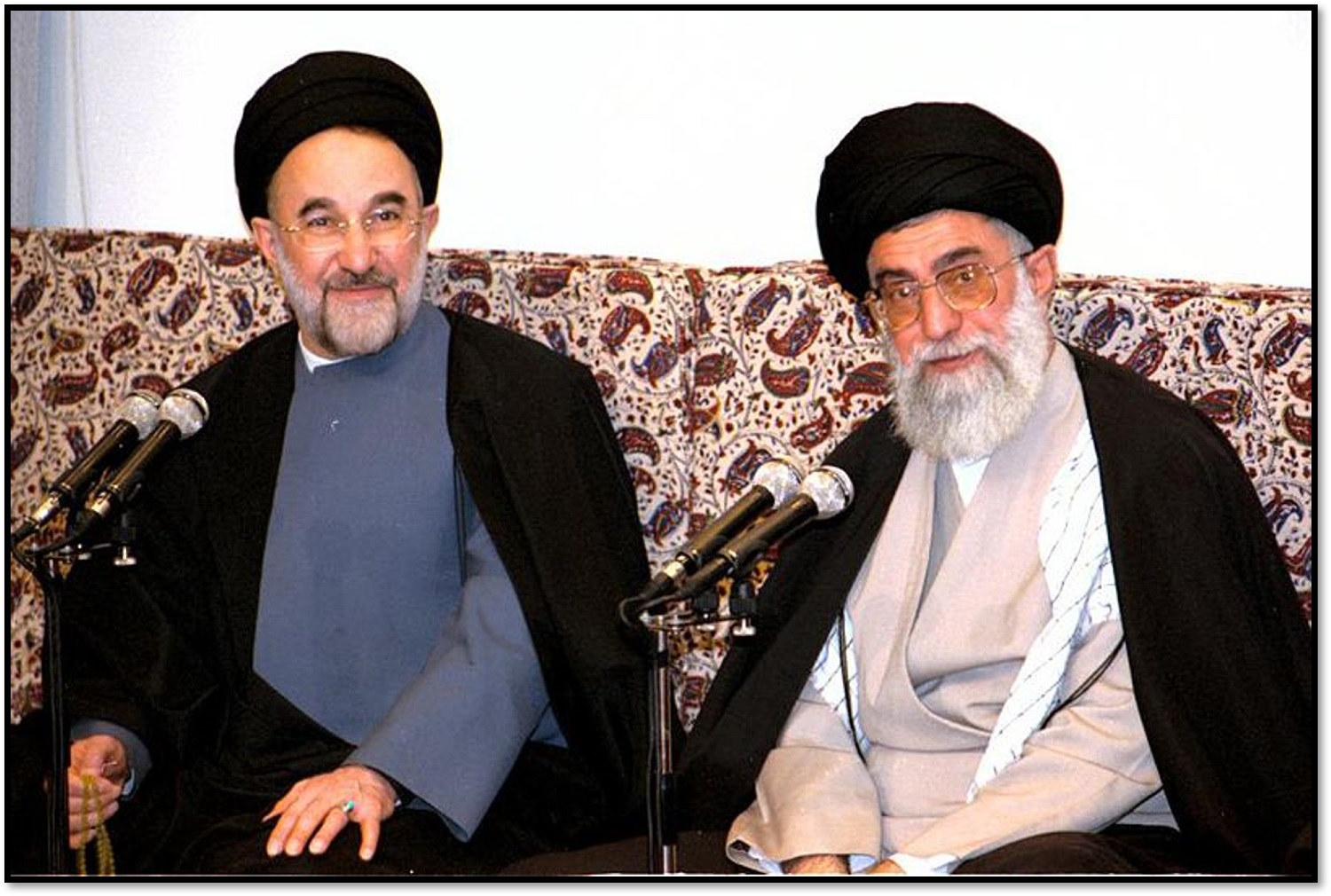
Khatami, who was president from 1997 to 2005, was a different breed. He brought in a different narrative, which happened in the context, by the way, of events in the former Soviet republics and all the velvet revolutions. Ayatollah Khamenei was scared about how that model could be imitated or replicated in Iran. He was fearful of instability in Iran. So that became a not particularly helpful relationship. Khatami has always been respectful of Khamenei, even when they disagreed. But overall, it was a time of great instability politically. The reform movement was launched in the mid-1990s, and Khatami became its spokesman and leader. Factional politics became dangerous.
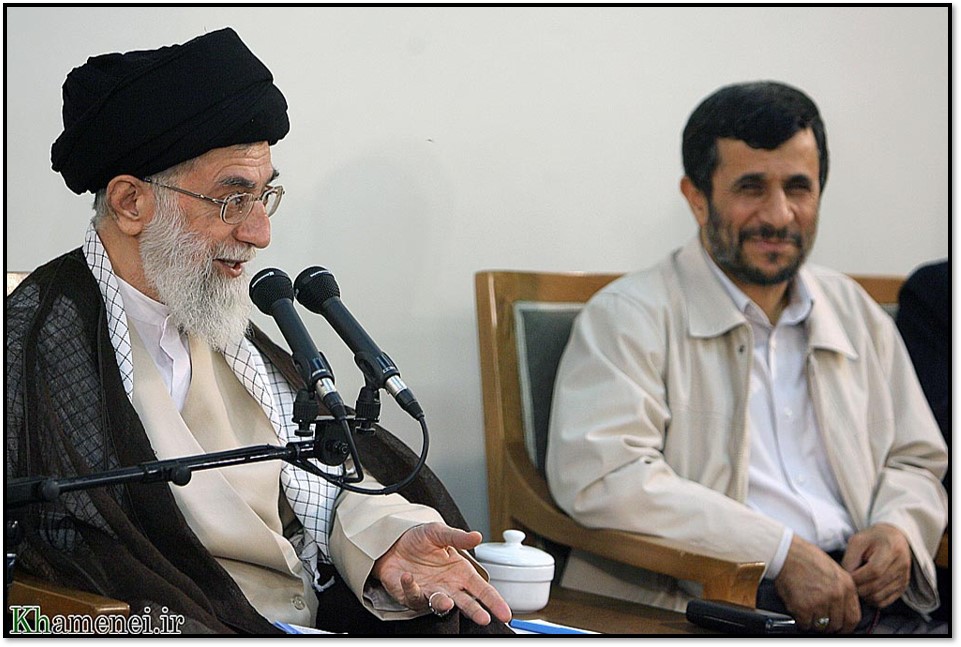
The supreme leader has probably looked back on the Ahmadinejad presidency, from 2005 to 2013, as a big mistake. Ahmadinejad was a very flawed candidate supported by conservatives. They didn't realize how damaging his presidency might be. Some people liked him because of his austere life, coming from a working-class background, and not being connected to the political establishment, an outsider à la Donald Trump.
But Ahmadinejad failed the supreme leader enormously, and he failed public expectations that he would carry the social justice mantra. He ended up being all the negative things that people feared he might be. He ended up being so destructive to the system that the leader had to marginalize him. So that relationship was also very unique. Ahmadinejad is now outside even the norms of opposition in Iran.
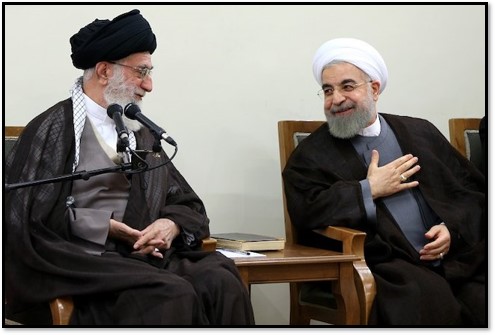
Rouhani, who was president from 2013 to 2021, had a long working relationship with the supreme leader from the days of the revolution going back in the late 1970s. They know each other pretty well. Rouhani came from a background of national security and knew the political process up and down. He was on the Supreme National Security Council and served in Parliament. Their relationship has been more deliberative. It's more of a technician talking to the boss and the general contractor.
So, as president, Rouhani could argue for policy recommendations with the supreme leader, who could in turn support him or disagree. Rouhani’s pet issue was the nuclear project, and he thought an agenda driven by foreign policy would favor him with the public and within the system. It was a double-edged sword for him—and created political backlash. Politics in Iran are really more like a battle zone in the jungles of Vietnam. All politicians have to watch for snipers, or mines, and rocket-propelled grenades blowing up in their faces.
Unfortunately, President Trump came in and made the relationship between Khamenei and Rouhani even worse. Trump perhaps had a more adverse impact on politics and the natural political evolution in Iran than any other U.S. president did in the last 30 or 40 years. The only problem for Rouhani was that he put so many of his political eggs in the basket of foreign policy and the nuclear deal. If the United States had not pulled out of the deal, it could have arguably changed the Iranian political environment. The presidential election might have turned out different. The relationship between the two men could have been more constructive, given the potential windfall of the deal.
Secondly, Rouhani relied on many of the old-guard officials from the Rafsanjani era, and Khamenei wanted a younger generation to become more involved in the management of the system. But that relationship never soured. They had the same outlook about how to run a modern state. They may have different prescriptions for it, but they had a shared experience. They were involved in making decisions during the Iran-Iraq war. They came through the very heavy loaded experience of those years. Rouhani may end up being the only president who has a good relationship with Ayatollah Khamenei after his presidency. Despite all the problems, he's not going to be an outcast.
What does Khamenei want Raisi to do or achieve as president?
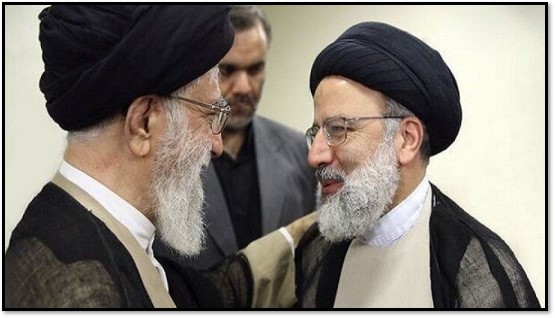
Khamenei might look at him as a transition to a new generation of managers and politicians to run the country. He might be a conduit to what Khamenei wants as a younger and more “Hezbollahi” government of principlists or hardliners. That is the expectation, even if he has not explicitly said it. It’s a general theme in a lot of Khamenei's recent speeches. He wants a reshuffling of the bureaucrats, managers and technocrats—people who were actually educated in Iran who are really 100 percent supportive of the system. It could mean diversifying the state machinery to include a lot from the younger generation, if not entirely eliminating the older generation.
It may also mean a more aggressive and bold position vis-a-vis the United States and the outside world, which is the conservative project. Their position is: “So, okay, enough with these Western-friendly diplomatic gesture by Rouhani and his foreign minister, Mohammad Javad Zarif. Don't mistake us as Western-educated guys who can deliver deals. We can deliver deals—but on our terms.” Everyone talks about the economy and social justice, but at a broader level the more important issues for Khamenei are how to deal with the world more forcefully and, at the same time, how to transition to a new post-generation-one leadership.
Is Khamenei grooming Raisi to succeed him as supreme leader? If so, why Raisi?
No, he's not necessarily grooming Raisi. It's the conventional wisdom, particularly here in Washington, but there’s no indication that he is the preferred choice right now. He may be among the choices, among the potential candidates. But I don't think that Khamenei has decided. Others are definitely trying to do that. But at this point, nobody knows who is going to be the next supreme leader and who is being considered. It is all pure speculation at this point. It's more of a game.
Raisi has his own supporters and detractors. He would be a safe member of the transitional council that's constitutionally mandated to serve until the next supreme leader is selected. When Ayatollah Khamenei passes away, there will be a sort of temporary leadership council—made up of the president, the chief of judiciary, and a member of the Guardian Council—to run the country. That council will have an impact on how the constitutional process works and how the Assembly of Experts picks Khamenei’s successor. In that sense, Raisi might be very helpful as the safest candidate in that camp. Beyond that, I don't think he's being groomed. I really don't.
It's actually a dangerous minefield. If Raisi happens to fail as president, then that's bad for him. It could be damaging. It could essentially kill his candidacy for the supreme leader. And in the meantime, other candidates may pop up who people then find are more qualified than Raisi. Iran’s political system and its inner workings do not follow an entirely top-down model. Factions from the bottom up often struggle to frame their issues and influence the apex of power—the supreme leader.
